After 31 years of my life, I started blood tests due to diabetes. For Most of us, due to some kind of disease, we only come in touch with blood tests in our lives.
Yes, diabetes is a condition where a continuous blood test is needed but other diseases need a blood test to confirm it.
Learning and knowing more about the blood test and how it all works will benefit not only those who are a patient but also those who are healthy and want to stay that way.
What is a blood test?
A blood test is an analysis of cells, proteins, chemicals, and other substances found in the blood. Depending upon what you want to find and what your doctor has prescribed the blood test for it can be cancer to drugs consumed.
According to merriam-webster.com “ a laboratory test in which a sample of blood is withdrawn from the body to analyze the level of substances or cells (such as glucose, hemoglobin, or white blood cells) that indicate the presence or probable development of a particular disease or medical condition (such as diabetes, cardiovascular disease, or cancer) or serve to indicate the degree of function of a specific organ (such as the liver or kidney)”
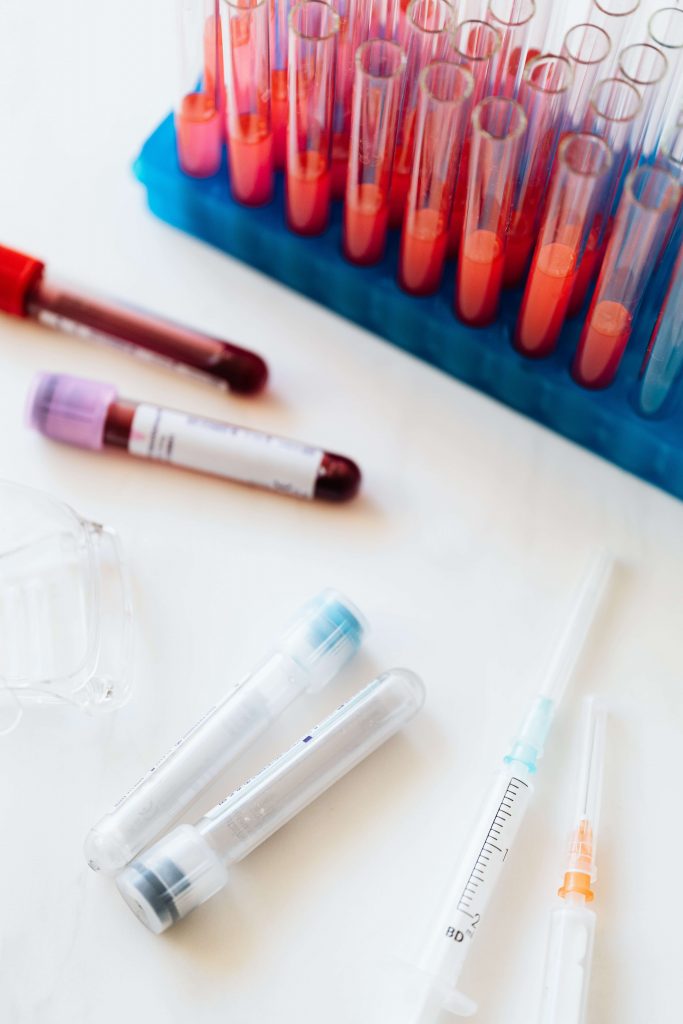
Testing blood regularly is an important way to keep track of your health and to know check the changes happening in your body.
How blood test is done?
Either you can visit the pathology lab or hospital where a healthcare worker or lab technician also called a phlebotomist takes blood. They tie a band over your hand and look for the vein in your arm and insert the needle and take the blood out. Venipuncture is the name of this process.
The whole process of taking blood will take about 5 to 10 minutes to complete. Apart from venipuncture other two methods of blood sampling are Arterial sampling and the Finger prick test. In an arterial sampling, blood is drawn from the artery and while doing this process you may feel sharp pain while inserting the needle.
In the finger prick test, pricking your finger to collect the sample for further processing. This method is useful for the test at home with the home kit and rapid tests. You will see diabetic patients doing these tests more often to check their blood sugar levels.
In the case of a newborn heel stick test is considered wherein the baby’s heels are clean with a proper agent and poke a needle for a collection of blood.
In most cases you don’t have to prepare and taking blood is a routine matter but in certain cases like diabetes, you have to take blood twice so the first time it’s done empty stomach and the second time after two hours after eating.
In general, while blood is drawn it is a little bit painful. Those who have an aversion to needles should look away while the blood is drawn and when the needle is inserted take a deep breath till the needle is fully inside your vein. This process will lessen the pain you will feel while the needle is inserted. I can attest to this with my personal experience.
Why is a blood test done?
A blood test is a part of diagnostic testing wherein the doctor is trying to get the confirmation of the hypothesis he has made in the process of the initial interview you did with him. There can be the following reasons your doctor has said to get the blood test.
1. To diagnose a certain disease or condition.
2. Monitor a recurring condition like diabetes or high blood pressure.
3. To check if the treatment which is going on is going in the right direction and the patient is getting better.
4. To check the working condition of the organs like liver, kidney, thyroid, or heart as with age or time or by hereditary diseases the vital organs may not work in proper condition.
5. Diagnosing bleeding and or clotting diseases.
6. To check if the immune system is fighting infection or not.
7. To find if any health problem is developing with age or due to any other condition which is known or unknown to you.
Where is a blood test done?
The blood sample is sent to the pathology lab for further testing depending upon the test prescribed by the doctor. The pathology lab is where the test is done. Nowadays these pathology labs are part of the diagnostic center where you can get other services like sonography, CT, X-ray, and more along with blood tests. This center facilitates the patients by providing different tests simultaneously, thus saving time and money.
Though you don’t require any license to open a pathology lab you need a pathologist with a proper degree and if possible NABL accreditation for the lab.
It does not take long for the blood test result to come most of them come within 12 to 24 hours and some specific tests might take longer depending upon the lab location and test prescribed.
There is always doubt in people’s minds that are blood tests always accurate? To answer that around 90% accuracy is there. The deficiency happens because the test methodology, laboratory operation, and the instrument can be the reasons which bring the difference.
What are the types of blood tests and what do blood tests reveal?
There are different types of blood tests for confirming different problems. Each blood test does reveal what is not working properly in a certain part of the body. Following are a few tests and what the blood test reveals.
Complete Blood Count (CBC)
Complete blood test or CBC gives you a health report based on the blood result. The main components are Red Blood cells (RBC), White blood cells (WBC), Hemoglobin part of RBC, Hematocrit part of RBC, and Platelets for blood clotting. Many times along with CBC, differential count tests were also made. It shows white blood cell count in percentage
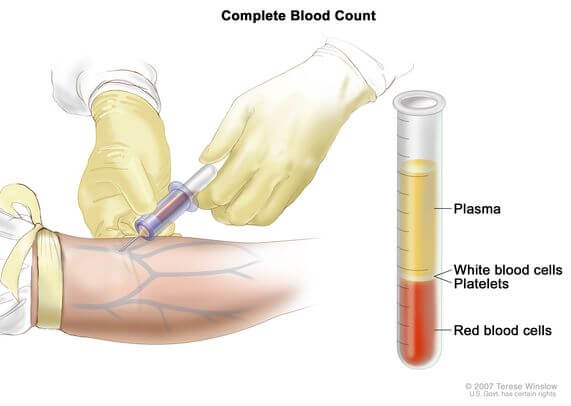
Below is the table with the normal range or normal blood test levels
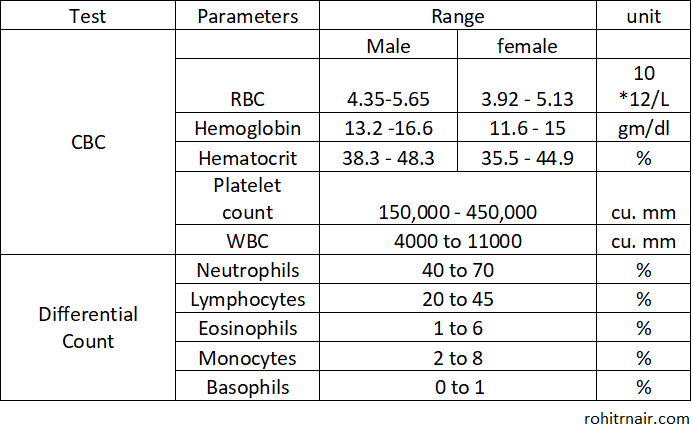
These tests let us know if we have anemia, heart diseases, bone marrow, cancer, inflammation, any immune system disorder, to any side effects of any medication.
Liver Function Test
Liver function tests, often known as liver chemistries, are to assess the health and vitality of your liver by assessing the levels of proteins, liver enzymes, and bilirubin in your blood. They can also monitor the progression or treatment of an existing condition along with side effects of any medication, damage due to any other illness, or check the effects of high consumption of a high amount of alcoholic beverages.
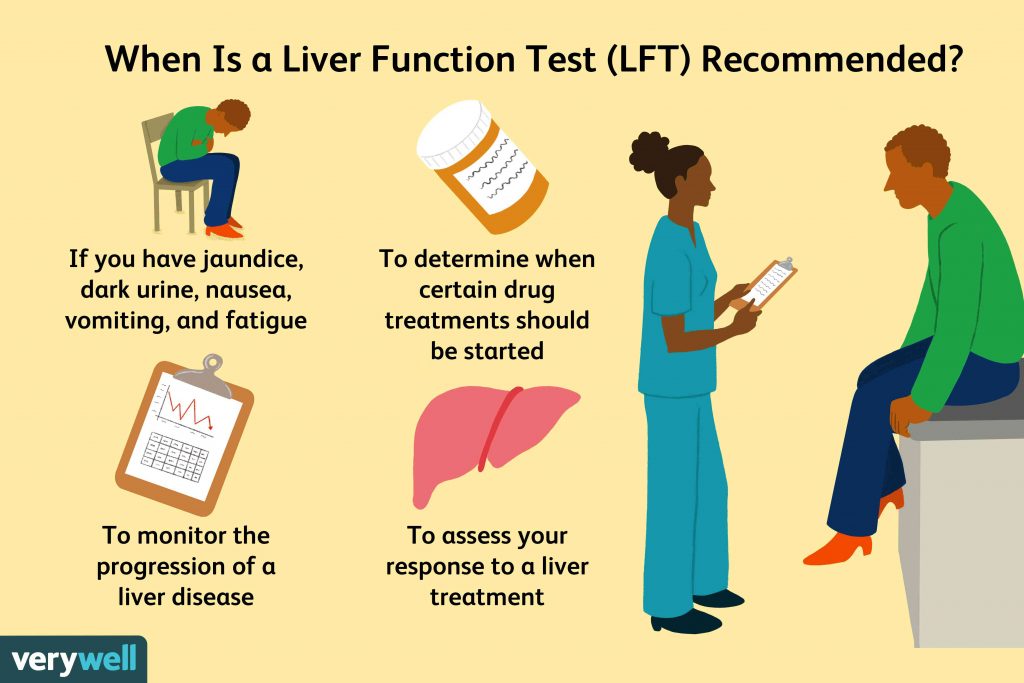
Below is the table with the normal range when the test is conducted.
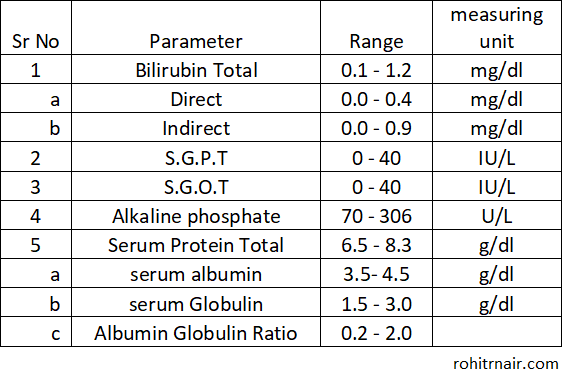
Apart from these tests, the CRP test is also conducted. C-reactive Protein is produced by your liver when it is inflamed and when the test is conducted the Concentration Of CRP should be less than 3.0 mg/L.
Kidney Function Test
Kidney function tests determine how effectively your kidneys work. The bulk of these tests evaluates how well your kidneys eliminate waste from your system. A kidney test might consist of a blood test, a 24-hour urine sample, or both. The test result normally comes within 24 hours.
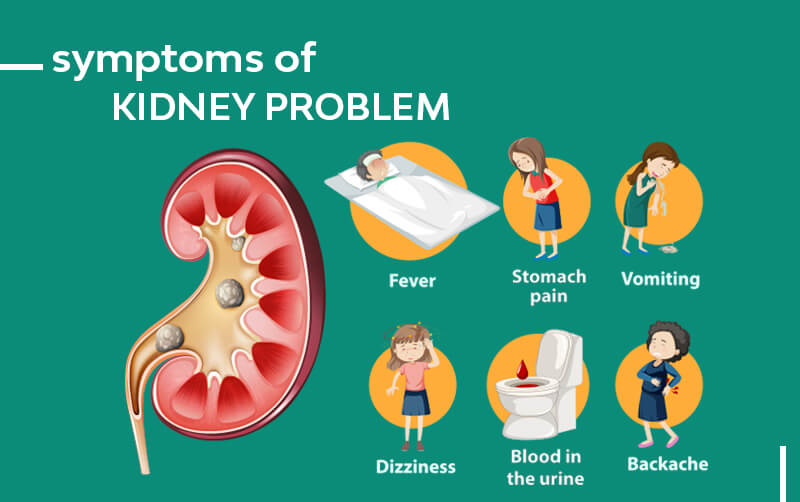
Below is the table with the normal range when the test is conducted
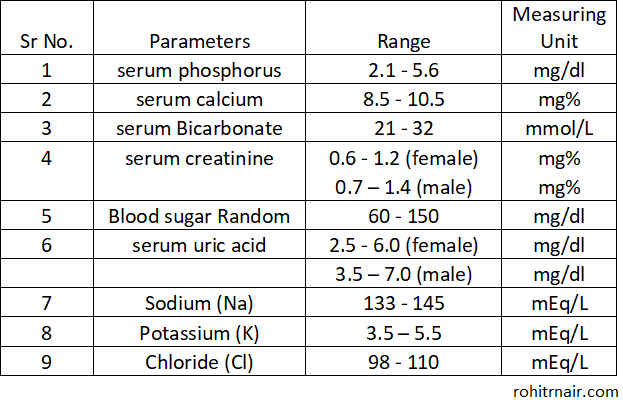
Cardiovascular Test (Lipid Profile)
A lipid panel or profile is a blood test that analyses the levels of certain fat molecules known as lipids in your blood. In most cases, the panel includes four independent cholesterol measurements as well as a triglyceride test.
Too much lipid (cholesterol and triglycerides) in your blood can cause a build-up in your blood vessels and arteries, causing damage and raising your risk of cardiovascular disease. As a result, healthcare practitioners use lipid panels to assess the risk of cardiovascular problems in both children and adults, such as heart disease, heart attack (myocardial infarction), and stroke.
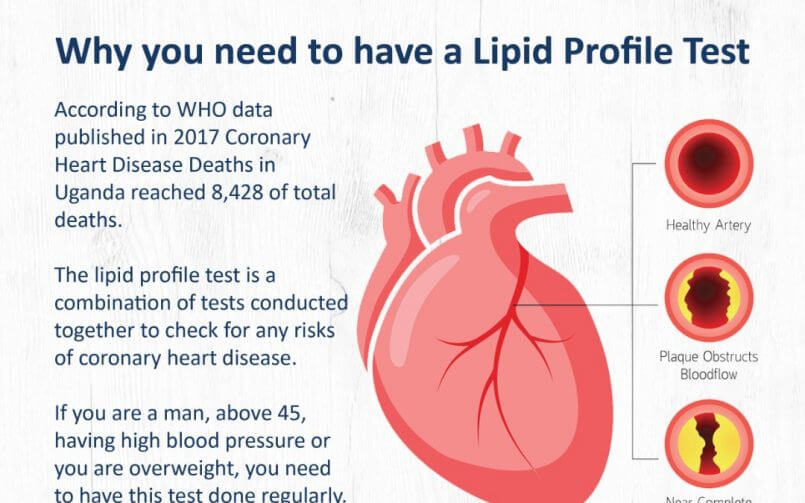
Below is the table with the normal range when the test is conducted
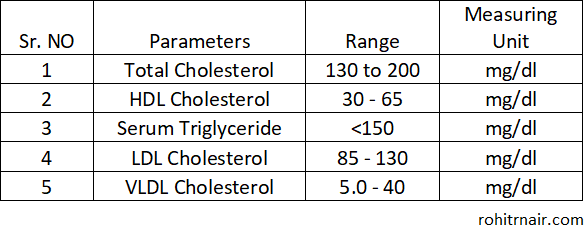
Thyroid Profile
Thyroid profile testing assesses thyroid gland function by measuring thyroid hormone (T3 and T4) and thyroid-stimulating hormone (TSH) levels. The thyroid profile test is performed in the following manner: Thyroid conditions such as thyroiditis, goiter, and thyroid cancer can all be diagnosed. To monitor hypothyroidism and hyperthyroidism.
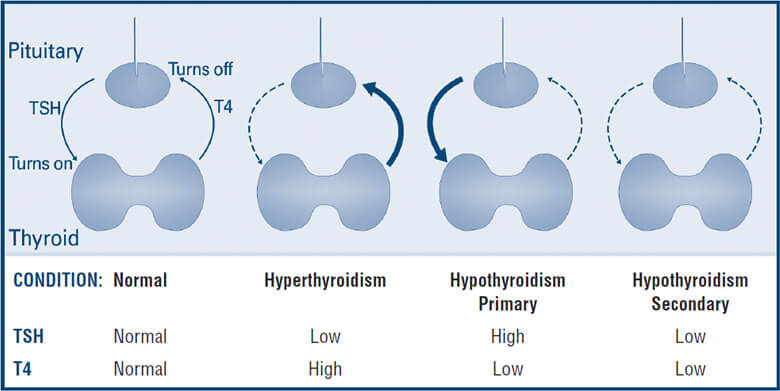
Below is the table with the normal range when the test is conducted
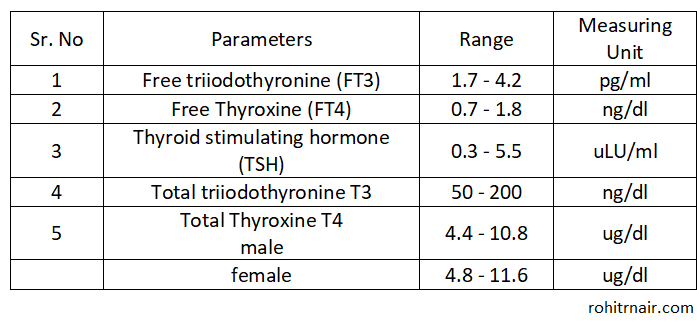
Diabetes Test
Diabetes is a disease that occurs when your blood glucose, often known as blood sugar, becomes too high. Blood glucose is your main source of energy, and it comes from the meals you eat. Insulin, a pancreatic hormone, facilitates the passage of glucose from meals into your cells for use as energy. Your body may not generate enough—or any—insulin at times, or it may not use insulin correctly. As a result, glucose stays in your bloodstream and does not reach your cells. Diabetes is not curable but it has to be managed.
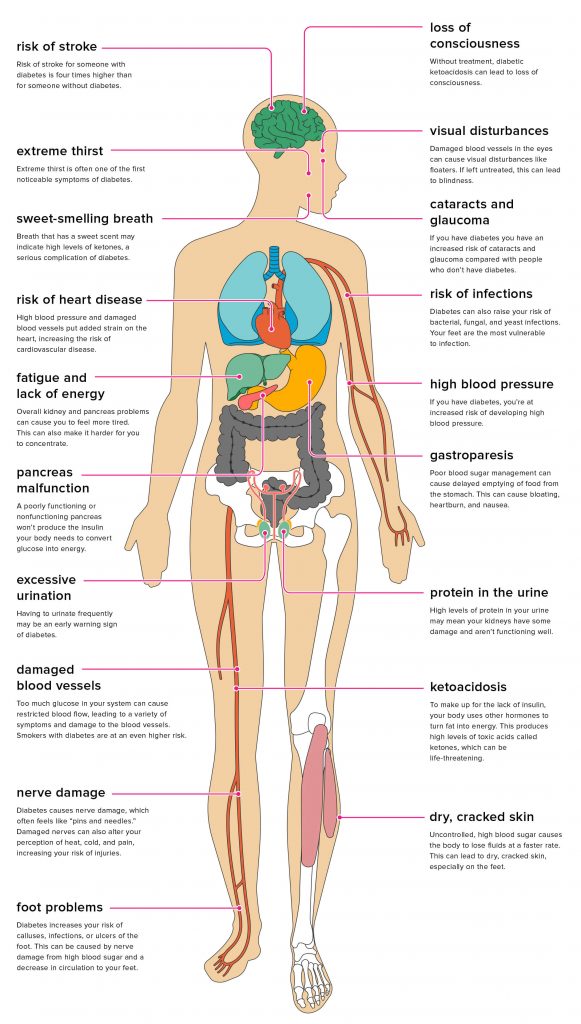
There are 3 types of diabetes and they are Type 1 diabetes in which your body is not making any insulin, Type 2 Diabetes which does not make much or is not able to use it well and Gestational diabetes happen to some women when they are pregnant and normally it goes away. But if you had gestational diabetes then chances are high that you will develop type 2 diabetes in the future.
Below is the table with the normal range when the test is conducted.
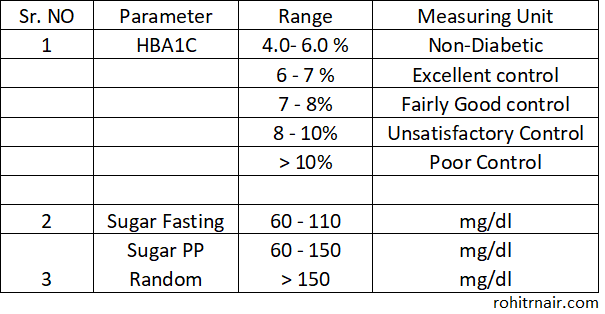
Apart from these three tests, there is another test called Glucose Tolerance Test. In this, the instrument measures your blood sugar levels before and after drinking a glucose-containing beverage. You will fast (not eat) the night before the test and have your blood drawn to determine your fasting blood sugar level.
Following that, you’ll consume the beverage and have your blood sugar levels checked an hour, two hours, and maybe three hours later. A blood sugar level of 140 mg/dL or less at 2 hours is considered normal; 140 to 199 mg/dL indicates prediabetes, and 200 mg/dL or more indicates diabetes.
There are many other blood tests some regular and some unique to the specific task. Some unique to a specific task is a blood bleeding time and clotting time test which is done before an operation to check the timing of bleeding after the cut is made and also clotting time to check when after the bleed clotting starts.
We have dengue and HIV test which are regular tests taking place in pathology labs. HIV being a common test where is enzyme immunoassay method is used to check the antibodies of Human Immunodeficiency (HIV I & HIV II) in human serum or plasma.
Conclusion
Blood tests can provide you with a clear picture of your overall health. They are also a great way to discover illness or disease early on, as well as track how well your body responds to various treatments. In modern times when physical work is less and the body is not getting enough exercise the chance of getting many diseases is high and without finding them early it will not only cause discomfort it will also cost us more and the mortality rate will go up in the later stage.
Does a full blood count detect diabetes?
Yes, Type 2 diabetes may be diagnosed rapidly with a simple screening exam and blood test. However, it is normal for it to go untreated for years until a clinician draws a blood sample to test blood glucose levels.
Can I smoke before a blood test
No, you should not smoke or exercise because this make digestion faster and will effect the blood works. You can take your prescribed medicines unless your doctor says otherwise.
Can a normal blood test detect HIV
Yes it can detect HIV infection. The method they use is Enzyme immunoassay (EIA) for the detection of antibodies of HIV I & II in human serum or plasma. DNA RECOMBINANT TECHNOLOGY and chemically synthesized peptides is applied to obtain optimal sensitive and specificity to the assay.

